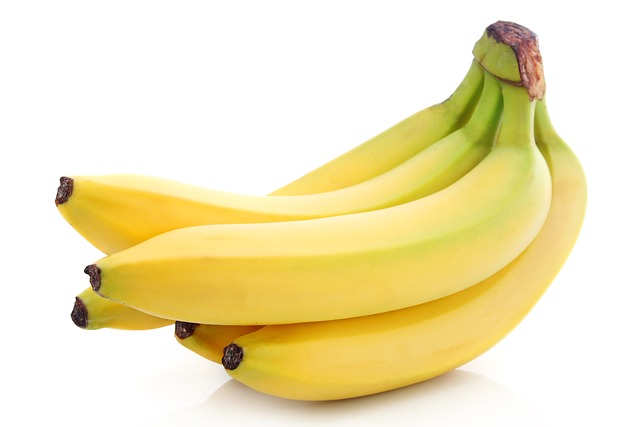The gut-brain connection is a fascinating and vital relationship between your digestive system and your brain. This communication network, known as the gut-brain axis, plays a critical role in regulating emotions, mood, and overall mental health. What you eat can either strengthen or disrupt this connection, influencing not just your gut health but also your brain function.
If you’re looking to improve your mental well-being and gut health, adopting a gut-brain connection diet is a natural and effective way to start. This article explores how diet impacts the gut-brain connection, the best foods to include, and tips for optimizing your nutrition for better health.
What is the Gut-Brain Connection?
The gut-brain connection refers to the communication between your gastrointestinal system and your central nervous system. This relationship is mediated by:
- The vagus nerve, which carries signals between the gut and brain.
- Neurotransmitters, such as serotonin and dopamine, many of which are produced in the gut.
- The gut microbiome, a community of trillions of bacteria that influence digestion, mood, and immunity.
A healthy gut can enhance mental clarity, emotional stability, and stress resilience, while an unhealthy gut can contribute to anxiety, depression, and brain fog.
How Diet Impacts the Gut-Brain Connection
Your gut microbiome thrives on what you feed it, making your diet one of the most significant factors influencing the gut-brain axis. Foods that promote a healthy gut can improve neurotransmitter production, reduce inflammation, and boost overall mental health. Conversely, processed and inflammatory foods can harm the microbiome, disrupt gut health, and negatively affect your mood and cognition.
The Best Foods for a Gut-Brain Connection Diet
To support a healthy gut-brain connection, focus on whole, nutrient-rich foods that nourish your gut microbiome and reduce inflammation. Here’s what to include:
1. Probiotic-Rich Foods
Probiotics are beneficial bacteria that help balance your gut microbiome, improving digestion and boosting mood-regulating neurotransmitters like serotonin.
- Examples: Yogurt (with live cultures), kefir, sauerkraut, kimchi, miso, tempeh, and kombucha.
2. Prebiotic Foods
Prebiotics are types of fiber that feed the beneficial bacteria in your gut, helping them thrive.
- Examples: Garlic, onions, leeks, asparagus, bananas, apples, oats, and flaxseeds.
3. Omega-3 Fatty Acids
Omega-3s are anti-inflammatory fats that support brain health and reduce gut inflammation.
- Examples: Fatty fish (salmon, mackerel, sardines), walnuts, chia seeds, and flaxseeds.
4. Fermented Foods
Fermented foods contain natural probiotics that enhance gut health and improve gut-brain communication.
- Examples: Pickles (fermented naturally), yogurt, and fermented soy products like miso and tempeh.
5. Fiber-Rich Foods
Dietary fiber promotes healthy digestion and supports the growth of beneficial gut bacteria.
- Examples: Whole grains, legumes, leafy greens, and root vegetables like sweet potatoes and carrots.
6. Antioxidant-Rich Foods
Antioxidants help combat oxidative stress and inflammation in the gut and brain.
- Examples: Berries (blueberries, strawberries), dark chocolate, green tea, spinach, and broccoli.
7. Polyphenol-Rich Foods
Polyphenols are plant compounds that support gut health by feeding beneficial bacteria and reducing inflammation.
- Examples: Dark chocolate, red wine (in moderation), coffee, olive oil, and nuts.
8. Hydrating Foods and Drinks
Proper hydration is essential for maintaining gut motility and nutrient absorption.
- Examples: Water, herbal teas, cucumber, and watermelon.
Foods to Avoid for a Healthy Gut-Brain Connection
Certain foods can disrupt the gut-brain axis by causing inflammation, harming gut bacteria, or interfering with neurotransmitter production. Limit or avoid the following:
- Processed Foods: Chips, packaged snacks, and ready-made meals often contain additives that disrupt gut health.
- Refined Sugars: Excess sugar feeds harmful bacteria, leading to an imbalanced microbiome.
- Artificial Sweeteners: Sweeteners like aspartame can negatively impact gut bacteria.
- Trans Fats: Found in fried and processed foods, trans fats promote inflammation in the gut and brain.
- Alcohol: Excessive consumption disrupts gut bacteria and increases gut permeability.
Tips for Building a Gut-Brain Connection Diet
Adopting a gut-brain diet doesn’t mean you need to overhaul your meals overnight. Here are practical steps to get started:
1. Gradually Increase Fiber Intake
Introduce fiber-rich foods slowly to prevent digestive discomfort while improving gut health.
2. Diversify Your Diet
A varied diet ensures your gut bacteria receive a wide range of nutrients. Aim to include different vegetables, fruits, whole grains, and legumes in your meals.
3. Focus on Fresh, Whole Foods
Choose whole, unprocessed foods whenever possible to provide your gut microbiome with the nutrients it needs.
4. Include Probiotics and Prebiotics Daily
Incorporate at least one probiotic-rich and one prebiotic-rich food into your diet every day to support a balanced microbiome.
5. Stay Hydrated
Drink plenty of water throughout the day to maintain digestive health and nutrient absorption.
6. Limit Inflammatory Foods
Reduce your intake of processed, sugary, and fried foods to avoid disrupting your gut microbiome.
The Role of Lifestyle in the Gut-Brain Connection
While diet plays a crucial role in the gut-brain connection, lifestyle factors are equally important. Pair your gut-brain diet with the following habits for optimal results:
- Manage Stress: Chronic stress disrupts the gut-brain axis. Incorporate stress-reduction practices like meditation, yoga, or deep breathing into your daily routine.
- Exercise Regularly: Physical activity promotes a healthy gut microbiome and improves gut motility.
- Get Quality Sleep: Poor sleep negatively impacts gut health, so aim for 7–9 hours of restful sleep each night.
- Avoid Overuse of Antibiotics: Antibiotics can kill beneficial gut bacteria, so use them only when necessary and supplement with probiotics if prescribed.
Benefits of a Gut-Brain Connection Diet
Adopting a gut-brain diet can lead to significant improvements in both mental and physical health, including:
- Enhanced Mood and Reduced Anxiety: A healthy gut produces neurotransmitters like serotonin, which regulate mood and emotions.
- Improved Digestive Health: Balanced gut bacteria reduce bloating, constipation, and other digestive issues.
- Boosted Immune System: A strong gut microbiome supports immune function, reducing susceptibility to illness.
- Better Cognitive Function: Improved gut health has been linked to sharper focus, better memory, and reduced brain fog.
Final Thoughts
The gut-brain connection highlights the profound impact that diet has on both your physical and mental well-being. By nourishing your gut with probiotics, prebiotics, fiber, and anti-inflammatory foods, you can improve mood, reduce anxiety, and support overall health.
Start incorporating gut-friendly foods into your meals today and experience the benefits of a stronger gut-brain connection. Your second brain holds the key to a healthier, happier you.


Pingback: Understanding Chronic Stress: Causes, Symptoms, and Recovery - Wellness Readers Digest
Pingback: Creatine and Mental Health: Can This Popular Supplement Help with Depression? - Wellness Readers Digest
Pingback: Is the Brain 0.5% Plastic? Understanding Plasticity and Microplastics in the Brain - Wellness Readers Digest
Pingback: Twins Follow Opposite Diets for 12 Weeks: Fat vs. Carbs - Surprising Results Await - Wellness Readers Digest